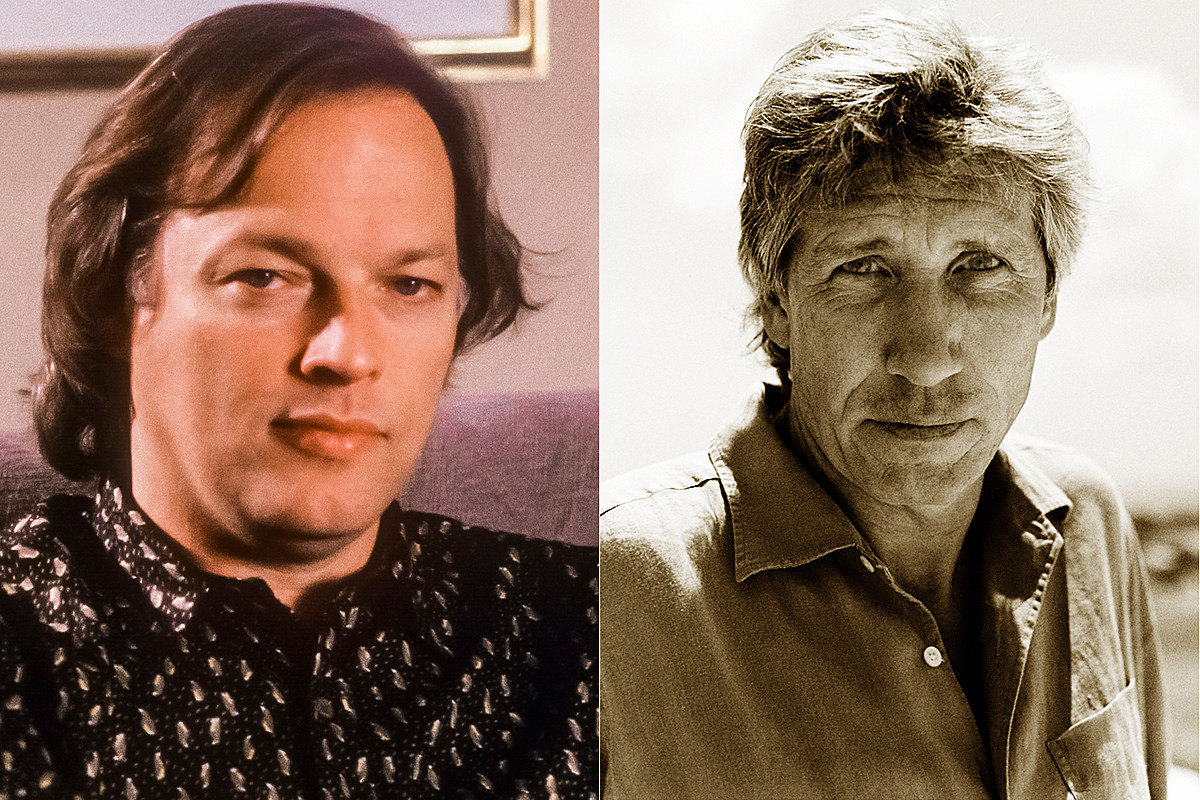
Given Pink Floyd's rare level of dysfunction, it's shocking they had survived through the early '80s at all. But even after the departure of Roger Waters — bassist, co-singer and overall ringleader for much of their lauded run — David Gilmour and Nick Mason refused to fold up shop.
The band’s 12th studio LP, 1983’s The Final Cut, had essentially been a glorified Waters solo project — built around the songwriter’s own concept, featuring reduced input from their guitarist and drummer. (Keyboardist Richard Wright had already left the group amid the tensions of recording The Wall.) The aftermath: a flurry of solo LPs and general confusion about their collective next step.
So in December 1985, when Waters informed Pink Floyd’s record companies of his exit, the coffin seemed closed for good. Except it hadn’t: By summer, Gilmour and Mason were already envisioning a future — including a new record — without their cofounding bassist. In October, Waters began legal action to dissolve their partnership, describing Pink Floyd as “a spent force, creatively.”
And the remaining members wasted little time volleying the ball back over the net. On Nov. 11, 1986, they issued a press statement announcing their intent to move forward as a band.
“The group have no intention of disbanding,” it read in part. “On the contrary, David Gilmour and Nick Mason, with Rick Wright and producer Bob Ezrin, are currently recording a new album.”
Gilmour also responded directly to Waters’ “spent force” remark, noting that the band’s strength “lay in the talents of all four members.”
“Naturally, we will miss Roger’s artistic input,” he admitted. “However, we will continue to work together as in the past. We are surprised at recent claims that Roger believes the band to be ‘a spent force, creatively’ as he’s had no involvement with the current project. The three of us are very excited by the new material and would prefer to be judged by the public on the strength of the forthcoming Pink Floyd album.”
That project became 1987’s A Momentary Lapse of Reason, which featured the trio joined by a battalion of session musicians, including bassist Tony Levin (King Crimson, Peter Gabriel), drummers Jim Keltner and Carmine Appice, saxophonist John Helliwell (Supertramp) and keyboardist Patrick Leonard (Madonna).
The tabloid-like insults continued at a semi-steady space — even after the two parties reached an out-of-court agreement to their legal issues (finalized Christmas Eve 1987 on Gilmour’s houseboat).
Some critics probably would side with Waters on the whole “spent force” subject: Reviews for Reason were lukewarm at best, with many writers lamenting the loss of Waters’ drive and thematic focus. And there’s a clear irony here: Waters’ intensity was both essential to Pink Floyd and, seemingly, one reason their classic run had to crumble.
Still, the album rose to No. 3 in both the U.K. and U.S., proving the band — and definitely the brand — had plenty of life beyond their onetime captain.
Pink Floyd Albums Ranked
Three different eras, one great band.
"Exit" - Google News
November 12, 2021 at 03:15AM
https://ift.tt/31V0hOr
35 Years Ago: Pink Floyd Pledge to Carry on After Waters' Exit - Ultimate Classic Rock
"Exit" - Google News
https://ift.tt/2zNkU0N
https://ift.tt/2YrnuUx
Bagikan Berita Ini














0 Response to "35 Years Ago: Pink Floyd Pledge to Carry on After Waters' Exit - Ultimate Classic Rock"
Post a Comment